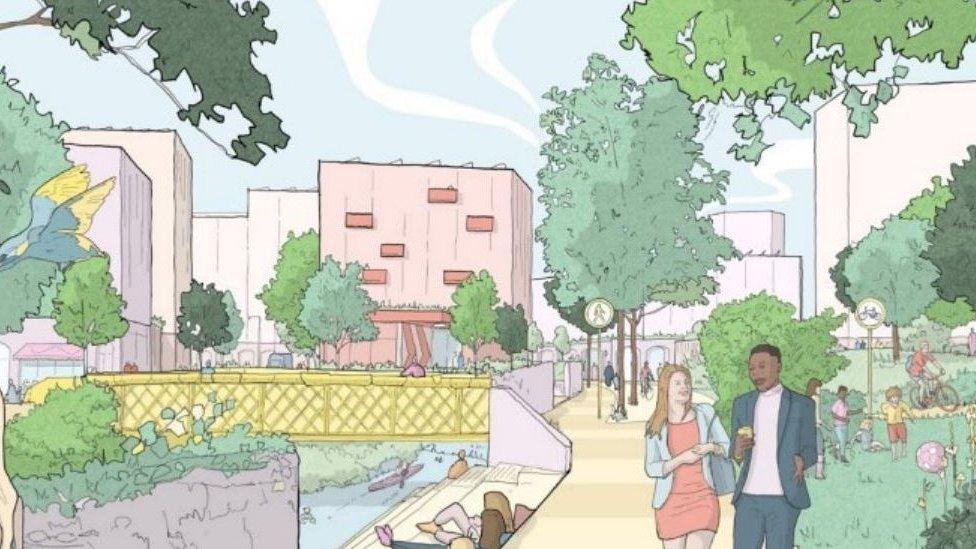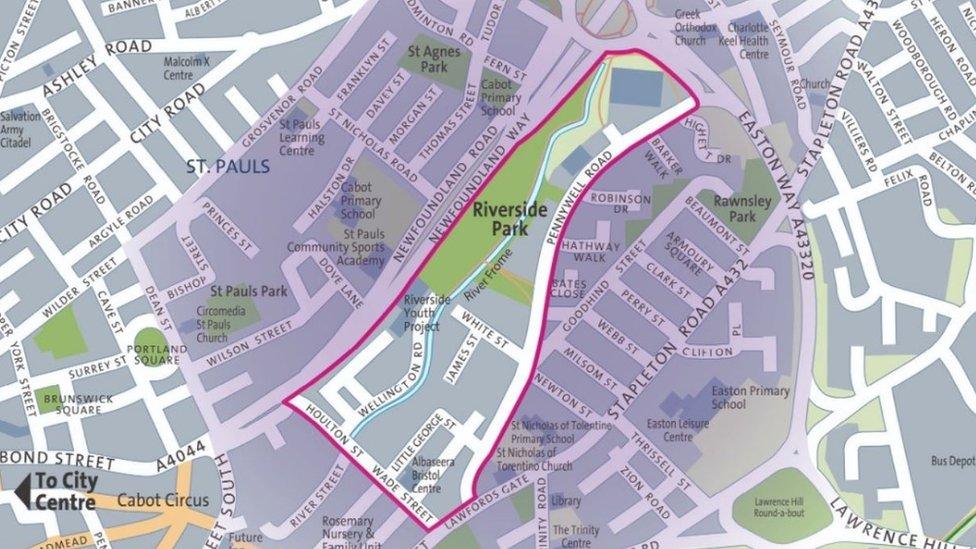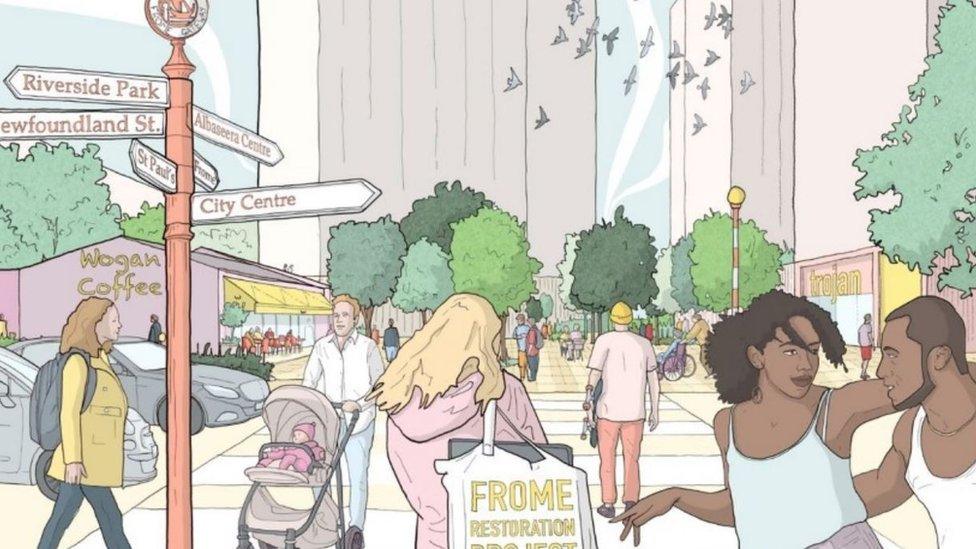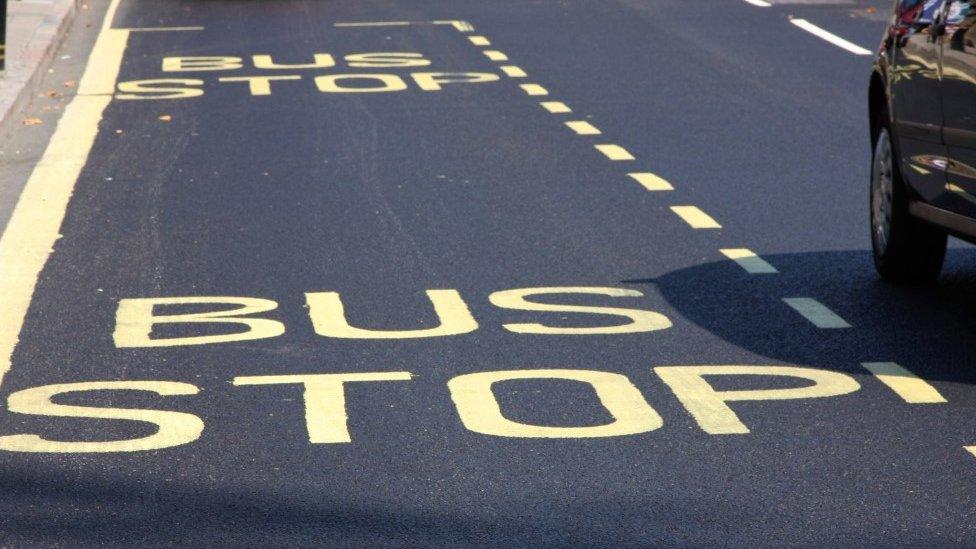Bristol regeneration project 'won't lead to gentrification'
- Published

An illustration of what the area could look like
A major regeneration project "won't lead to gentrification", council leaders have pledged.
In total, 1,000 new homes and 500 student beds are planned for the St Jude's area in Lawrence Hill, behind Cabot Circus and next to the M32.
Currently, the inner-city neighbourhood is mostly made up of warehouses, music venues and gyms.
Labour mayor Marvin Rees said Bristol City Council wanted to "make sure that the benefits are kept locally".

A map of the Frome Gateway regeneration project
At a public consultation last year, concerns were raised regarding gentrification, house prices, the amount of new students living in the area, and the height of new buildings.
Bristol City Council has promised to keep community and cultural spaces protected as part of the Frome Gateway regeneration.The project is expected to last 15 years, covering an area that includes Houlton Street, Wade Street, Wellington Road, Pennywell Road and Riverside Park.
The cabinet approved a regeneration plan on 6 February.During a cabinet meeting, Labour mayor Marvin Rees said Bristol City Council was keen to tackle gentrification.
"What we don't want is a regeneration that steamrollers over existing communities," he said.
"We want to tackle gentrification and make sure that the benefits are kept locally. That's not just for the people who live in the area, but that means local skills and supply chains and benefiting Bristol businesses."

A local lettings policy will make sure people living locally to the regenerated area have priority for new affordable homes
Gentrification happens when a poorer urban area is changed, with wealthier people moving in, housing improving, and new businesses attracted to the area.
This can lead to locals having to move out of the area as housing costs rise, and has previously happened in several parts of Bristol.A local lettings policy will help ensure local people have priority for new affordable homes, and some homes will be reserved for key workers, who can struggle to afford to live in the city near major employment centres like the Bristol Royal Infirmary.
The regeneration plan also includes new shops, cafes and workspaces, and opening up access to the River Frome.
There will also be a dedicated light-industrial and night-time economy area to the north of the area.A freight consolidation hub will be created in Universal House, and an energy centre will be erected at the council-owned depot on Wellington Road, to provide hot water for a district heat network.

Follow BBC West on Facebook, external, X, external and Instagram, external. Send your story ideas to: bristol@bbc.co.uk , external
Related topics
- Published8 February 2024

- Published11 February 2024
